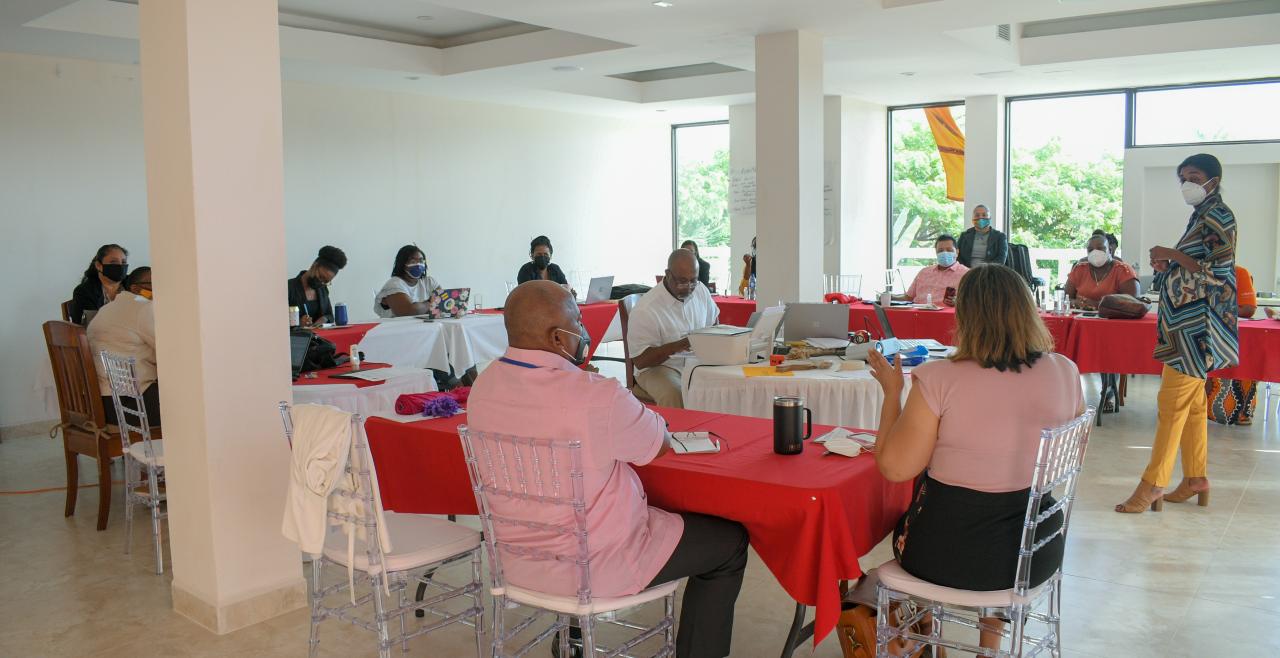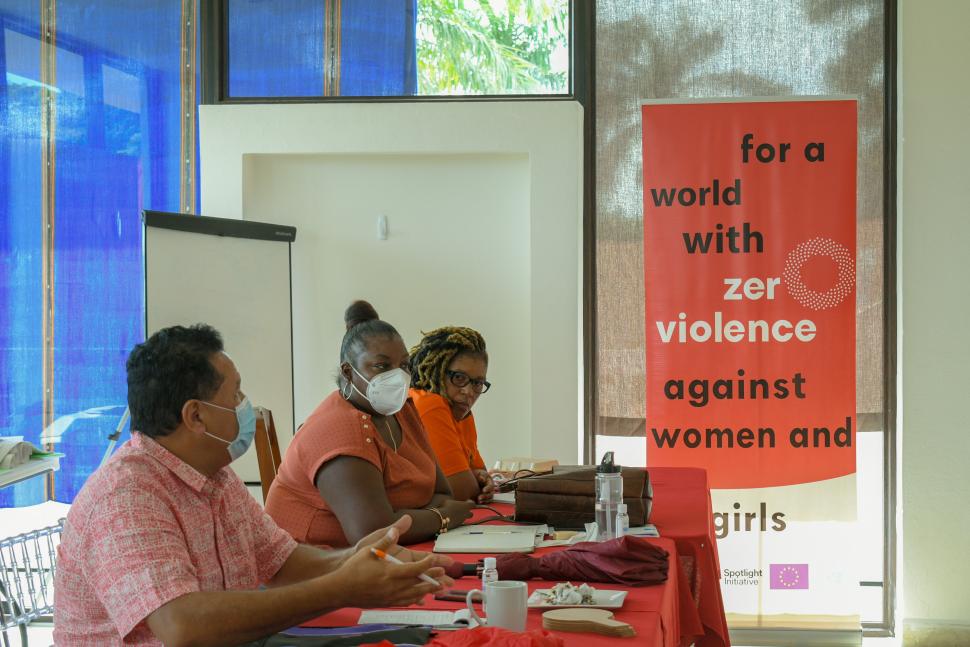Improving services for women and girls in Belize by building institutional capacity

HOPKINS, Belize – In November 2021, the National Women’s Commission – the governance and oversight mechanism for responding to gender issues including gender-based violence (GBV) – conducted a training workshop with key stakeholders. This included members of the police, social services, judiciary, health and coordination and governance of coordination sectors. The training aimed to enhance their skills, knowledge and competencies so that they can mainstream gender and take gender-based violence considerations into their programme design, implementation, evaluation and reporting.
The need for gender mainstreaming through gender-transformative programming
“Often the design and implementation of programmes and projects are done in a blanket fashion without taking into consideration the gender perspective,” said Kristina Romero, the Director of Hope Haven Children’s Home, a Non-Governmental Organization, and Board Member of the National Women’s Commission.
“At the police department there is a need to disaggregate data, distinguishing between domestic violence and gender-based violence, and to record data on marginalized groups,” said Howell Gillett, Assistant Commissioner of Police in the Research, Planning, Legal Affairs and Compliance Branch, Police Headquarters. This training made us more aware of the importance of taking gender and GBV issues into consideration.”
Sandra Diaz-Cadle, Coordinator for Training and Development at the Ministry of Public Service, Constitutional and Political Reform, said that this training was needed because “working for the ministry with the overall authority of the public service, I believe that it is important for us to be knowledgeable about this because when we look at developing regulations and policies that guide the service, to look at it with a gender lens.”
Defining an essential service package: changing the quality of service for women and girls in Belize
The training workshop also served to initiate consultations for defining an Essential Service Package (ESP) for Belize, a guidance tool for identifying the essential services to be provided to all women and girls who have experienced gender-based violence, including services that should be provided by the health, social services, police and justice sectors along with guidelines for the coordination of these services.
“It’s sad to say, but when a victim of gender-based violence is subjected to telling their story more than once, re-victimization occurs,” said Howell Gillett. “I believe that the essential services package will help in that area because there will be coordination among all stakeholders.”
Rashida Guzman, Community Development Officer with responsibility for Toledo District, Department of Human Services added that defining and having an ESP “will be important not only to serve as a guiding tool for us to respond to GBV, but so that we can hold the necessary stakeholders accountable for their responsibilities in responding to GBV.”
Defining an ESP will allow “women to feel more comfortable when accessing services as most times they do not go to the police or health sector because they may feel judged or blamed,” said Ms. Romero. “The structure of the package will allow for revictimization to be lowered and the quality of services will improve.”
This reaffirms a common view across all service sectors for the need for a coordinated, survivor-centred and gender transformative approach to responding to violence against women and girls and “leaving no one behind”.
The training engaged approximately 20 government and civil society focal points aligned to key essential service sectors in Belize, while 80 stakeholders were also trained on the ESP for Belize in 2021.
By Perla Hinojosa

